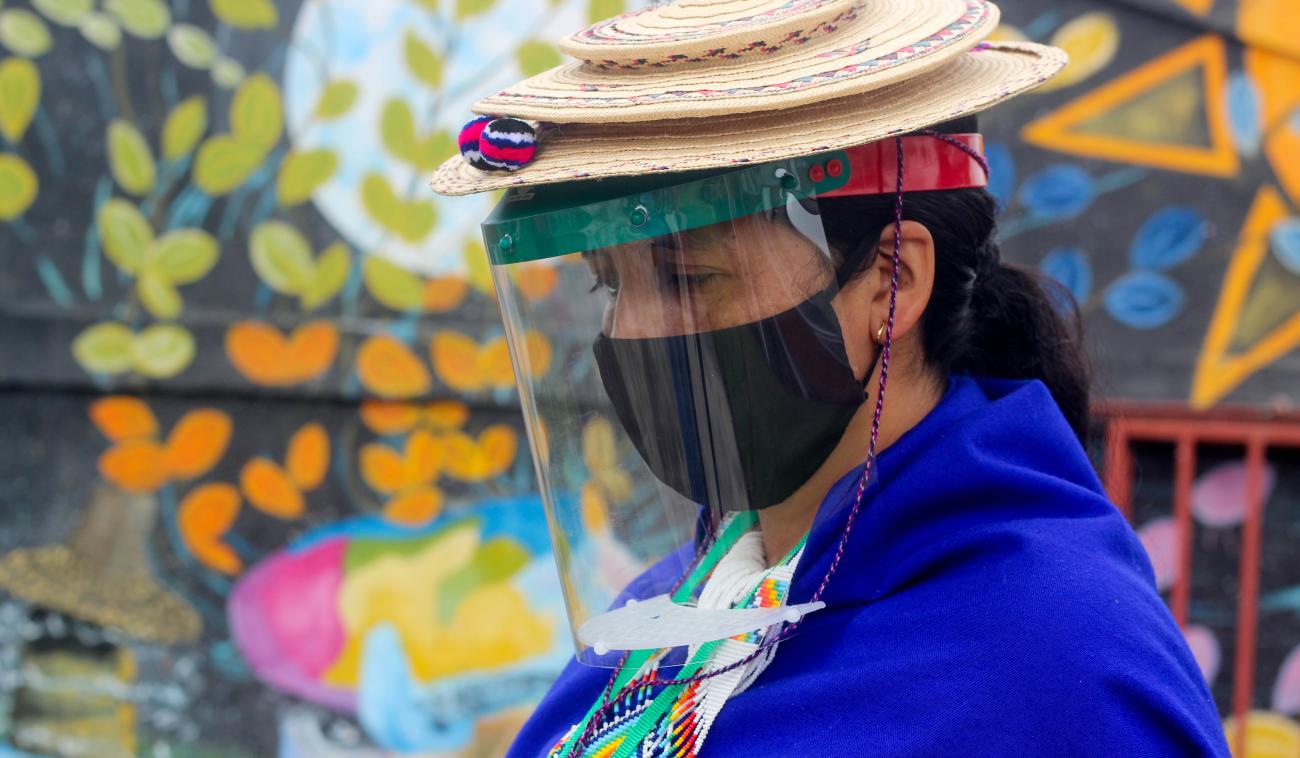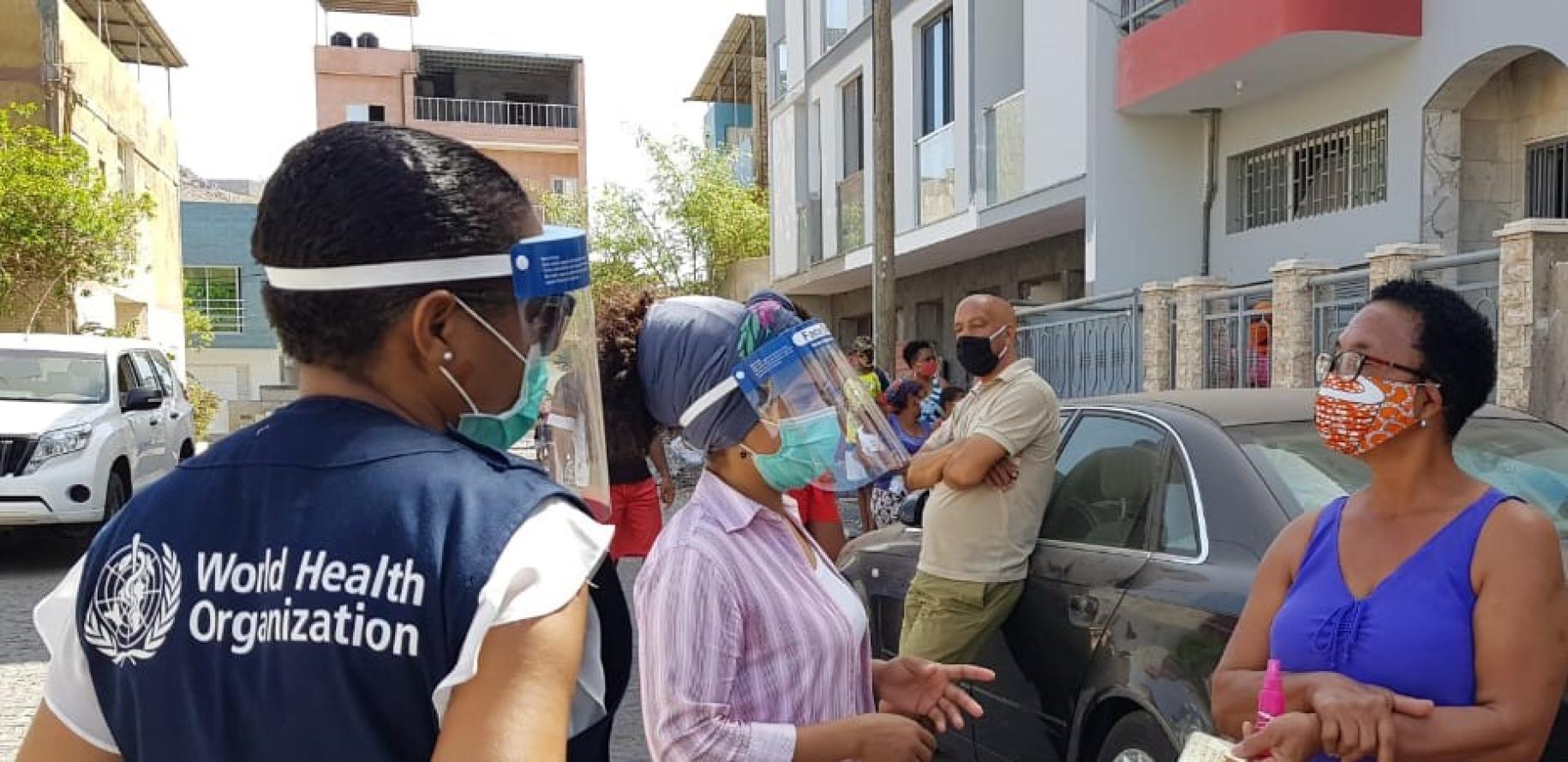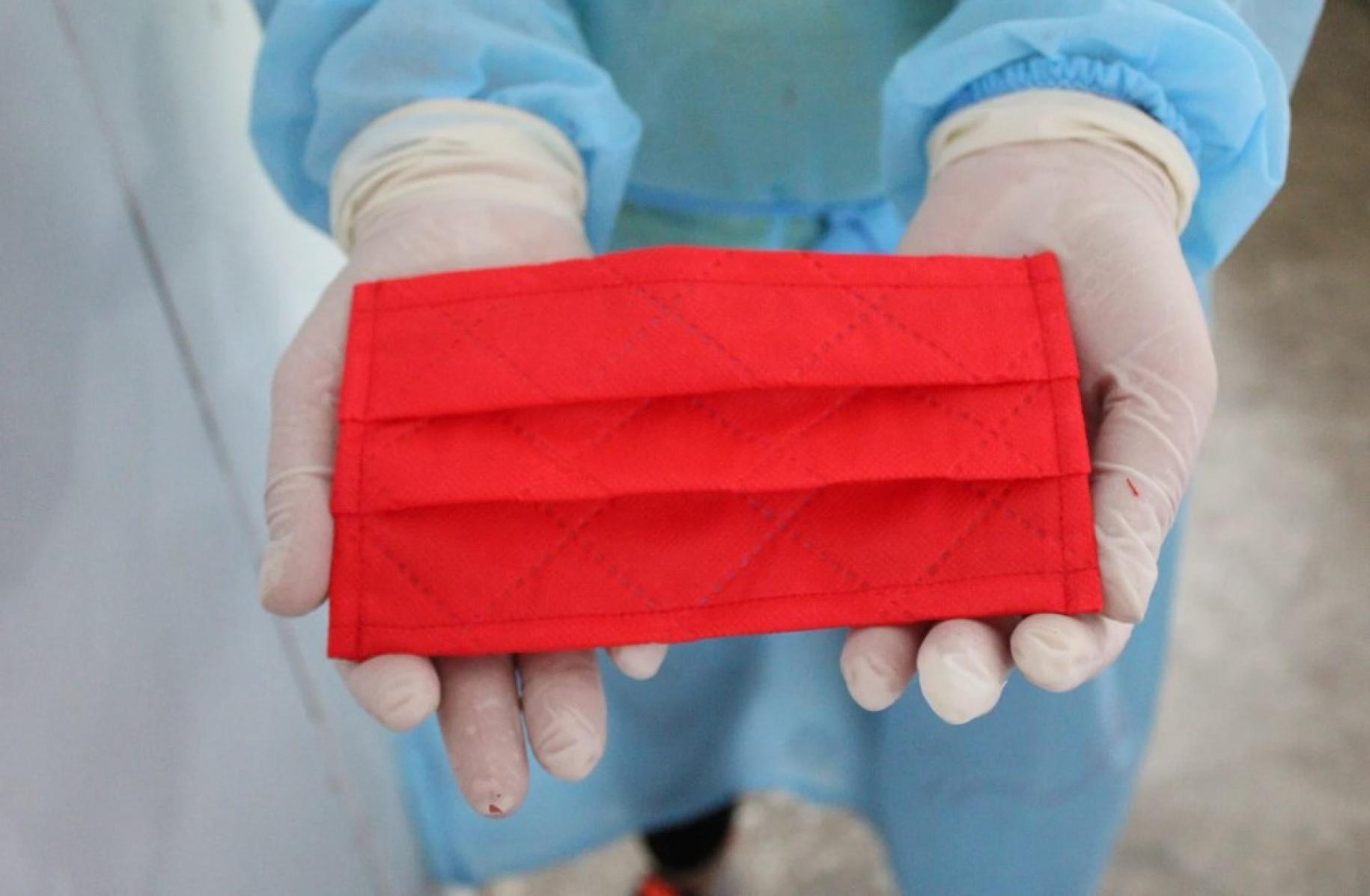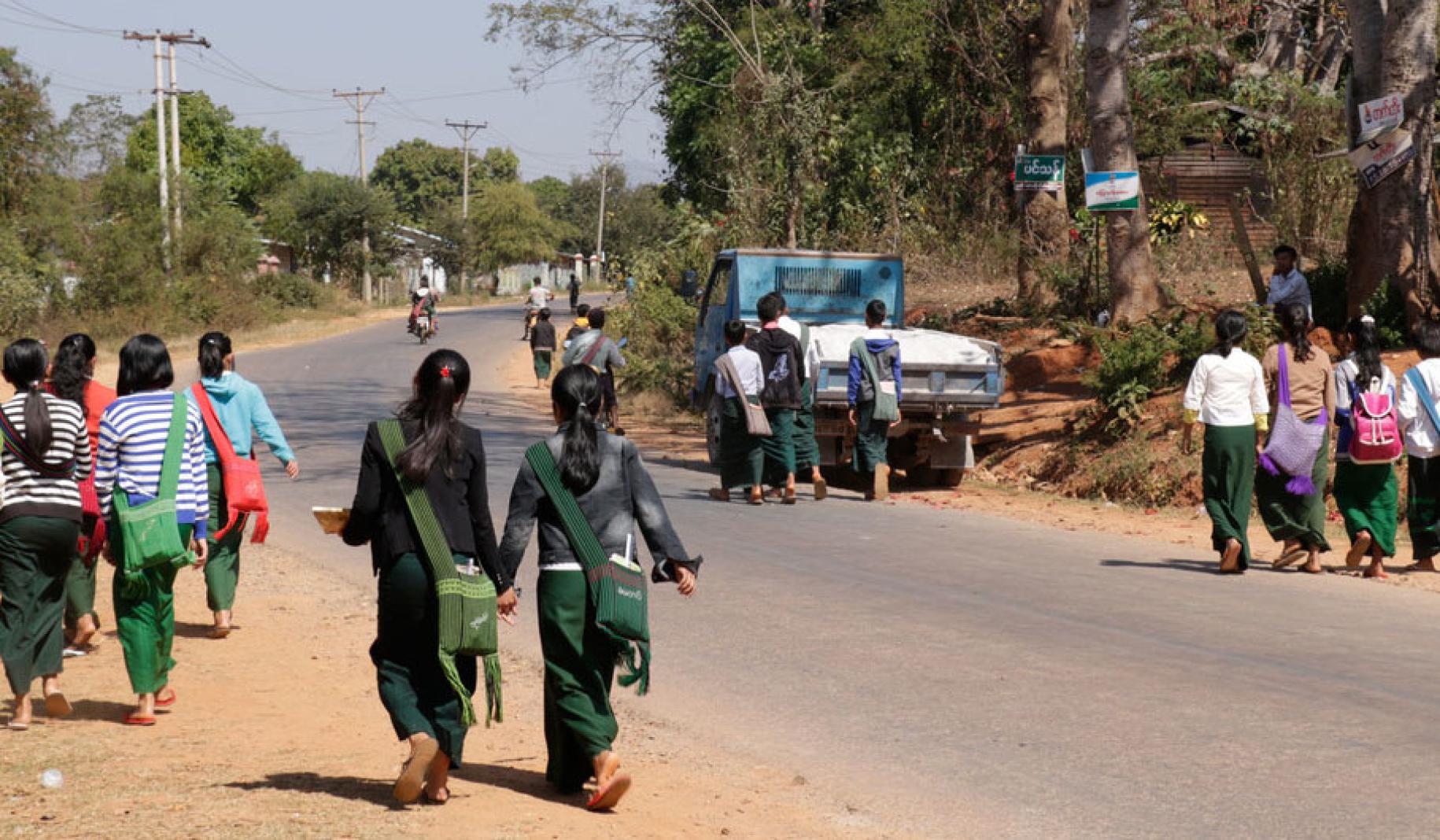Updates from the field #29: Reaching those most at risk during COVID-19

COVID-19 is a threatening virus that has ferociously spread across the globe. Unfortunately, those communities that were already vulnerable are at even greater risk during the pandemic. The UN country teams worldwide are scaling up efforts to provide targeted and innovative support to reach those most in jeopardy.
Today, we highlight some of the coordinated responses:
Cabo Verde
In Cabo Verde, Resident Coordinator Ana Patrícia Graça is leading the UN team in supporting the Government’s response to the pandemic. Our team has reprogrammed $17 million of funds previously geared for work on sustainable development. It has mobilized an additional $4 million to support national efforts to save lives and livelihoods.
Through a Crisis Response Coordination Platform set up with the Government, we have provided support for a socioeconomic impact assessment, in partnership with the World Bank, the African Development Bank and the European Union.

Through the COVID-19 data portal, the team is also reporting on the socio-economic impact of the crisis in Cabo Verde, focusing on vulnerable communities. This includes the provision of vaccines to more than 7,000 children under one year of age; assistance to more than 700 essential health workers; and remote-learning access to more than 66,000 children. Meals are also being provided to more than 26,000 primary school children, 100,000 people are receiving cash assistance and 14,000 small business have access to support programmes.
More data from the UN team in Cabo Verde and the UN work in other countries is available on the Development Coordination Office COVID-19 data portal.
Colombia
In Colombia, the acting UN Resident Coordinator there, Jessica Faieta, is leading the team’s work to support national and local efforts to save lives and livelihoods, in coordination with the UN Verification Mission on the peace and security front. Through the “Health for Peace” project, the World Health Organization (WHO), the International Organization for Migration (IOM) and the UN Population Fund (UNFPA) are all boosting access to health services in conflict-affected municipalities.
The UN team is also working on the pandemic response plan for the Amazon region in cooperation with the teams in Brazil and Peru. As a result, the UN Children’s Fund (UNICEF) provided hygiene kits and risk communication support while the World Food Programme (WFP) increased food distribution.

The UN in Colombia is also providing food, sanitation, and shelter to more than 900,000 people while supplying protective equipment, including 15,000 masks, all produced by former Revolutionary Armed Forces of Colombia (FARC) combatants. These were given to indigenous communities. Prioritizing the most vulnerable, including indigenous women, former combatants, refugees and migrants, the team also secured more than US$50 million to support the socio-economic recovery plan while providing technical assistance to local authorities and to support entrepreneurs and workers in small and medium-sized businesses.
A UN impact assessment showed that Colombia’s economy contracted nearly 16 per cent in the second quarter and unemployment rates reached nearly 17 per cent in August.
Ecuador
Now we go to Ecuador, where the UN team, led by Resident Coordinator Lena Savelli, is working with authorities to address the impact of the pandemic. The team has been focusing on small and medium companies to keep them open and safeguard jobs.
The UN Development Programme (UNDP), the UN Refugees Agency (UNHCR) and IOM have launched a digital start-up initiative that has reached over 120,000 businesses with guidelines on how to boost their capacity to deliver their products and services online. Staff in over 300 companies have received hands-on training and immediate seed funding for their digital transformation. This also targets migrant and refugee workers.
For its part, UNFPA is co-financing a US$4 million initiative with the Government to work with authorities on recommendations for maternal care, delivery, postpartum and contraception information, to meet the family planning needs of Ecuadorians and they’re also supporting the authorities’ response in the northern and southern borders, including in the Amazon region, mobilizing resources for testing kits, personal protective equipment for health officials, and training on sexual and reproductive health for local authorities, targeting half a million people.
Kenya
In Kenya, the UN team, led by Resident Coordinator Siddharth Chatterjee, is working closely with local partners to address the disproportionate impact of the pandemic on women and girls.
UN Women, UNICEF and the UNFPA have helped to set up a national toll-free helpline to assist in providing healthcare, security and legal assistance to an increasing number of women and children impacted by female genital mutilation, gender-based violence, child neglect, and child marriage. The helpline offers counseling 24 hours a day in English, Swahili and other local languages, processing more than 1,000 cases per month.
One in five women and girls between the ages of 15 and 49 in Kenya have undergone female genital mutilation.
The UN team there is concerned that the pandemic has set back progress to end female genital mutilation. Girls are disproportionately impacted by school closures, leading to an increase in child marriage, teenage pregnancy and sexual violence.
The UN team has increased its efforts to address these problems, including to ensure funding and community engagement.
Myanmar
We move now to Myanmar, where the UN team, led by Resident Coordinator Ola Almgren, is supporting authorities to address a recent spike in the number of COVID-19 cases. The UN has worked with authorities and donors to secure nearly 300,000 test kits and over 260,000 protection and hygiene products. WHO and UNICEF produced content in 90 languages, targeting nearly 16 million people.
People working in the informal sector and rural families have been greatly impacted, according to the UNDP and the Food and Agriculture Organization (FAO). UNICEF and the World Food Programme (WFP) are delivering cash assistance to 1.1 million households, half of them led by women, also targeting children and older persons.

Addressing the impact of school closures, WFP is delivering food to 145,000 families a day. The UN Educational, Scientific and Cultural Organization (UNESCO) and UNICEF prepared COVID-19 guidelines for more than 90,000 teachers, students and families, also with home learning material, with financial support from the Government of Japan.
Also, as migrants lose jobs and return to Myanmar, IOM as distributed health, water and sanitation and hygiene kits to nearly 130,000 returnees.





































